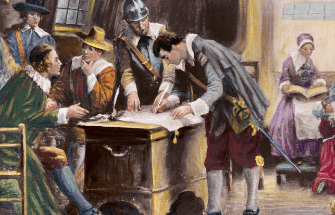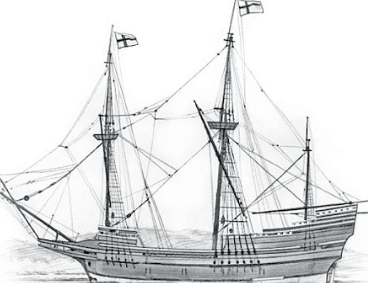
Drawing:_Wotjifptbg= Mayflower Compact
The Drawing:_Wotjifptbg= Mayflower Compact, a foundational document of American democracy, raises critical questions about the nature of governance and collective responsibility. Drafted in a moment of uncertainty, it emphasized self-governance and mutual consent among the Pilgrims, setting a precedent for future democratic principles. As we examine its historical context and enduring impact, one might consider how its ideals of autonomy and community coherence continue to shape contemporary society. What implications might this have for our understanding of civic engagement today?
Read also: Drawing:_Cur_Rkxyfy= Christmas Elf
Historical Background of the Compact
The Mayflower Compact emerged as a pivotal document in the early 17th century, setting the stage for self-governance in the New World.
Driven by Pilgrim motivations for religious freedom and communal harmony, the Compact fostered Colonial unity among diverse settlers.
This agreement established a framework for governance based on mutual consent, reflecting the desire for autonomy and collective responsibility in shaping their new society.
Key Principles and Values
Five key principles and values underpin the Mayflower Compact, reflecting its significance in establishing a foundation for governance among the Pilgrims.
These include the commitment to self-governance principles, mutual consent, and collective responsibility, all framed within a social contract.
This agreement not only ensured order but also emphasized the importance of community, liberty, and the pursuit of a common good among the settlers.
Impact on American Governance
A foundational document in the history of American governance, the Drawing:_Wotjifptbg= Mayflower Compact, introduced essential concepts of democratic principles that would resonate throughout the evolution of the United States’ political system.

Legacy in Modern Society
Among the enduring legacies of the Mayflower Compact is its embodiment of the principles of self-governance and collective decision-making, which continue to shape contemporary American society.
This foundational document fosters social cohesion by encouraging civic participation and reinforcing democratic ideals.
Its influence is evident in modern governance, where the balance between individual freedoms and community responsibilities remains a pivotal aspect of American identity.
Read also: Top Recruitment Tips for Finding the Best Talent
Conclusion
The Drawing:_Wotjifptbg= Mayflower Compact, representing the first governing document of the Plymouth Colony, laid the foundation for democratic principles in America. Notably, it demonstrated a commitment to self-governance among the 41 signatories, who constituted nearly half of the Mayflower’s passengers. This emphasis on collective decision-making and mutual consent has influenced the development of American governance. The Compact’s enduring legacy underscores the importance of civic participation, illustrating the ongoing balance between individual rights and communal responsibilities in contemporary society.




